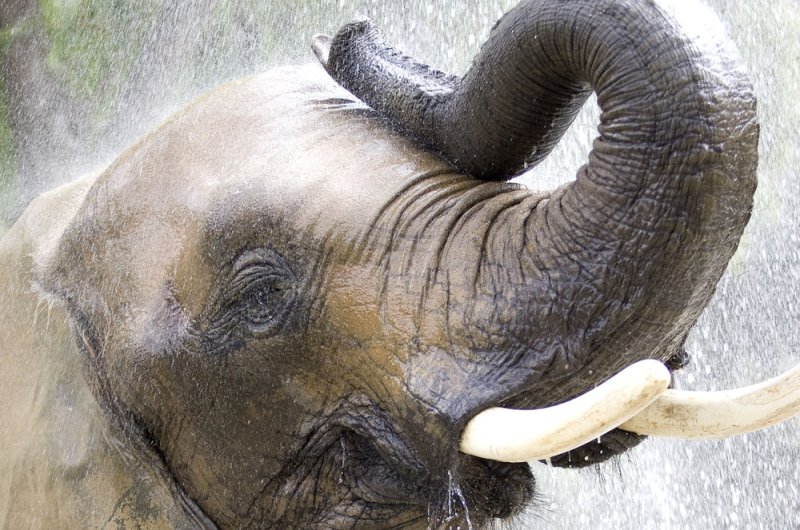World Elephant Day is being celebrated August 12. (UPI Photo/Ken James) |
License Photo
NAIROBI, Kenya, Aug. 12 (UPI) -- Some 30,000 African elephants are killed every year. They're slaughtered for their ivory, the material that forms their impressive tusks and fetches a handsome profit in Asia and the West where its cachet as a status symbol remains high.
The number of poached elephants would likely be much higher if it weren't for a number of hard-working conservation organizations -- like the International Elephant Foundation, African Wildlife Foundation, David Sheldrick Wildlife Trust and others -- and their volunteers who keep wildlife preserves funded and lobby governments in Africa to better police illegal ivory trade.
These conservationists and other wildlife advocates have helped dub Tuesday, August 12, as World Elephant Day, to raise awareness about the plight of elephants in the 21st century -- their habitat increasingly threatened by development and their lives under constant threat from poachers.
"The elephant is one of Africa's Big Five and literally looms large, not just in our landscapes but also throughout our history," said Dr. Philip Muruthi, African Wildlife Foundation's senior director of conservation science. "This event was not only about raising awareness about their magnificence and plight, but also about drawing attention to the many efforts to save them."
In honor of World Elephant Day, a letter signed by hundreds of conservationists is set to be delivered to the Inspector General of the Kenya Police, David Kimaiyo. The letter calls on Kimaiyo to arrest Kenya's most notorious ivory kingpin, Feizal Ali Mohamed, who has been accused by Kenya wildlife officials of orchestrating the murder of thousands of elephants. An arrest warrant for Mohamed was issued on June 11, but police forces have yet to carry it out.
But advocates say as long as the demand for ivory remains high elsewhere, Africans who can earn up to ten times their yearly earnings with the ivory from one elephant will continue to hunt and kill elephants -- with or without Feizal Ali Mohamed. Seventy percent of poached ivory ends up in China, where a pound can fetch upwards of $1,000.















